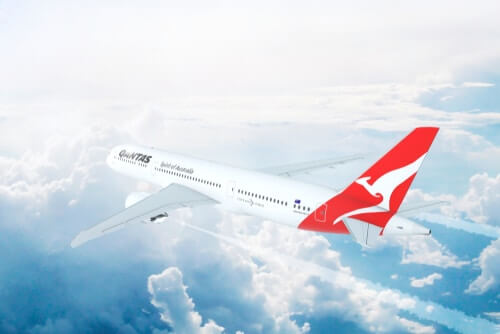Qantas Airways stock surged despite the settlement of a regulator lawsuit amounting to A$120.00 million ($79.00 million) over the sale of thousands of tickets on canceled flights.
In closed trading on Monday’s Asian afternoon session, the company’s stock rose by 0.34% to A$5.90 ($3.91) per share.
Meanwhile, according to the Qantas and Australian Competition and Consumer Commission (ACCC), the airline will split A$20.00 million ($13.24 million) among 86,000 customers who booked tickets on the so-called ghost flights.
As a result of the settlement, it will pay a substantial A$100.00 million ($66.20 million) fine, a significant financial commitment that the company has chosen to defend the case it recently vowed to fight.
According to reports, the penalty is the biggest ever for an Australian airline to settle and among the largest globally in the sector. However, some Aussie banks and casino operators have faced higher fines for breaching the law.
The airline’s CEO, Vanesa Hudson, said in a statement that the air company has acknowledged that it let down its customers and failed to reach the firm’s standards.
Hudson added that the settlement means they could reimburse the affected customers sooner if the lawsuit had persisted in the Federal Court, suggesting that the regulators must waive the agreement.
Based on reports, the court mandating the settlement would resolve a frequently highlighted debate during Qantas’ declining value amid adverse consumer feedback driven by cancellation complaints.
ACCC Lawsuit to Qantas Sends Caution to Other Companies
According to ACCC chair Gina Cass-Gottlieb’s statement, the penalty Qantas has faced will send a solid warning to other companies.
The airline and regulator noted that people who bought tickets on non-existent domestic flights would receive A$225 ($149.02), and customers with international fares would receive S450 ($298.04) in addition to the refund.
Meanwhile, Qantas awaits the amount it must pay the approximately 1,700 ground handling staff it laid off in 2020. A court found the sacks illegal since they were planned to halt industrial actions.
Furthermore, the ACCC case focused on the months following the Australian border resumed in 2022 after two years of COVID restrictions, and flight cancellations and lost luggage complaints skyrocketed globally amid staffing shortages.











